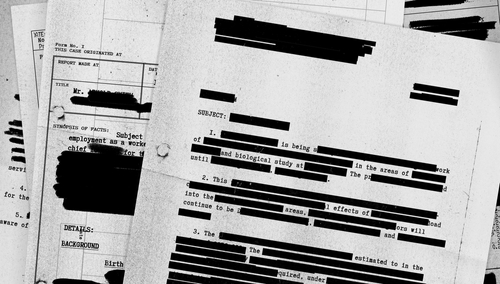In Lotus Indus., LLC v. Archer, No. 2:17-cv-13482 (E.D. Mich. May 24, 2019), Michigan Magistrate Judge Anthony P. Patti granted in part and denied in part without prejudice non-party City of Detroit Downtown Development Authority’s (DDA) motion for protective order in connection with the Court’s order granting in part and denying in part the plaintiff’s motion to compel documents requested by subpoena, ordering the plaintiff to pay some of DDA’s discovery costs, but not as much as DDA requested.
Case Background
In this civil RICO and First Amendment retaliation case associated with redevelopment of property in Detroit, the Plaintiff filed a motion to compel production of documents requested in his September 2018 subpoena to nonparty DDA in January 2019. A hearing was held on the plaintiff’s motion on March 26, 2019, after which the Court entered an order granting in part and denying in part Plaintiff’s motion, ordering DDA to produce, by April 26, 2019, documents responsive to Request Nos. 4-6 of Plaintiff’s subpoena for the November 19, 2016 to present time period, and to produce a privilege log for any documents withheld on the basis of privilege.
On April 19, 2019, DDA filed the instant motion for protective order, seeking an extension of time to produce responsive documents and requesting that the plaintiff pay DDA its share of the expenses of production before being obligated to begin to comply with the Court’s order, contending that the volume of potentially responsive documents was substantially larger than anticipated (48.5 GB of data) and would impose a significant expense on DDA to produce and require far more time to complete than allowed by the Court’s order. DDA initially anticipated the total expense of production at $127,653.00, which included $21,875.00 in costs to upload the data and approximately $105,778.00 in attorney’s fees in connection with a privilege review. DDA requested Plaintiff pay the $21,875 in costs and 25% of the anticipated attorney’s fees ($26,444.50); in response, the plaintiff opposed that motion and questioned why the costs were so high.
At the May 8, 2019 hearing on the motion, the parties agreed on new search terms to further refine the number of responsive documents and the Court scheduled a status conference for May 23, 2019 to discuss the results of that search. On May 22, 2019, DDA submitted a supplemental brief explaining that the revised search yielded 8.5 GB of data that must be reviewed for privilege, at a cost of $2,125.00 to upload the data to counsel’s eDiscovery platform and anticipated costs of $44,705.00 in attorneys’ fees to conduct a privilege review, so it sought an order for the plaintiff to pay DDA $2,125.00 in costs and $11,176.25 in attorneys’ fees (still 25% of the total attorneys’ fees anticipated).
Judge’s Ruling
Judge Patti found that “DDA has sufficiently established that it will be forced to incur $2,125.00 in fixed costs to upload the 8.5 GB of data to its third-party e-discovery platform in order to review it for production, and that it anticipates incurring $44,705 in attorneys’ fees to conduct a privilege review, prepare a privilege log and prepare the non-privileged documents for production.”
He also noted that “DDA has demonstrated that it has no interest in the outcome of this litigation, as it is not a party and Plaintiff’s prior case against it was dismissed as a sanction for Plaintiff’s ‘repeated misrepresentations’ and ‘failures to comply with discovery orders — despite warnings and the imposition of less severe sanctions…While DDA may more readily bear the expense of production than Plaintiff, that factor alone does not dictate that Plaintiff is relieved of the obligation to pay for some of the expense of production, particularly where this litigation has no particularized public importance and considering the ‘unusual circumstances’ in this case, including that Plaintiff’s prior lawsuit against the DDA was dismissed as a sanction, and he and his clients have been at the receiving end of multiple sanction awards in related and unrelated litigation, significant portions of which this particular plaintiff and his counsel have apparently failed to pay…In addition, the subpoena was directed in part at the general counsel for DDA, and Plaintiff should have anticipated that production of documents in response would require a robust privilege review prior to production, especially given the litigation history between Plaintiff and the DDA.”
As a result, DDA’s motion was granted in part and denied in part without prejudice and Judge Patti ordered that:
- “Plaintiff must pay to DDA the sum of $4,360.25, which constitutes the $2,125.00 in costs to upload the 8.5 GB of data to DDA’s counsel’s e-discovery platform, and $2,235.25 in attorneys’ fees (5% of the anticipated attorneys’ fees to conduct a privilege review, prepare a privilege log and prepare the non-privileged documents for production).
- Plaintiff must deliver the $4,360.25 check payable to City of Detroit Downtown Development Authority (although the check can be delivered to counsel for DDA) on or before 5:00 p.m. Monday, June 3, 2019. Plaintiff shall also promptly certify such payment to the Court, and include a copy of the check.
- DDA need not continue further efforts to produce documents until it is paid in full. Once paid, DDA shall have 45 days from that date to produce responsive documents, and a privilege log for any documents withheld on the basis of privilege.”
So, what do you think? Do you agree with the distribution of costs? Please let us know if any comments you might have or if you’d like to know more about a particular topic.

Case opinion link courtesy of eDiscovery Assistant.
Sponsor: This blog is sponsored by CloudNine, which is a data and legal discovery technology company with proven expertise in simplifying and automating the discovery of data for audits, investigations, and litigation. Used by legal and business customers worldwide including more than 50 of the top 250 Am Law firms and many of the world’s leading corporations, CloudNine’s eDiscovery automation software and services help customers gain insight and intelligence on electronic data.
Disclaimer: The views represented herein are exclusively the views of the author, and do not necessarily represent the views held by CloudNine. eDiscovery Daily is made available by CloudNine solely for educational purposes to provide general information about general eDiscovery principles and not to provide specific legal advice applicable to any particular circumstance. eDiscovery Daily should not be used as a substitute for competent legal advice from a lawyer you have retained and who has agreed to represent you.





